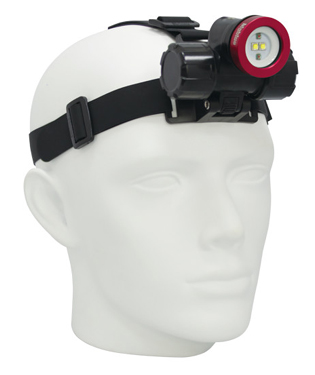There are a great many benefits to swimming, likely more than people realize. In this article, we will discuss the individual differences between swimming in warm, and in cold, water
First of all let us discuss the general benefits. The buoyancy effect of the water which provides an environment which improves movement of affected limbs. The physical properties of warm water and the weightlessness are utilized to gain relaxation. Immersion in warm water causes the blood vessels to dilate, resulting in increased circulation. Optimal benefit can be obtained by maintaining the water temperature between 92 and 94 degrees. The buoyancy of the water reduces body weight by 90 percent, which, in turn relieves pressure on the joints and creates a relaxing sensation of weightlessness.
In addition, hydrothermal exercise brings new awareness to the nervous system, creating positive changes in the body, not only for ourselves, but also for our pets. (See below)
- Warm water swimming assists joint movement, preventing further atrophy of the affected musculature of a limb during the healing process of neurological and musculoskeletal tissues.
- Blood vessels are stimulated in warm water which promotes circulation. The increased movement in the water causes an increase of the blood flow to the affected tissues.
- Swimming encourages the development of muscles and mobility. It also helps an animal to maintain muscle strength and range of motion by reducing forces of gravity.
- Warm water exercises can maximize the post-surgical recovery of the animal
- Swimming is a wonderful relaxant that stimulates the immune system.
- Swimming provides wonderful positive psychological effects for both animal and owner.
- Swimming helps to eliminate boredom and offers indoor exercise for days that you can’t exercise outside due to weather conditions.
Swimming can offer anyone of any age a huge range of health benefits as is noted in this piece by www.healthstatus.com/. They state that you might feel and look younger, have stronger muscles, and (according to a long time swimmer) better hair.
Swimming gives your body the workout minus the harsh impacts. Another awesome benefit is the living longer factor. You prolong your life and have higher brain activity with a regular swimming program. It helps control your weight and have a healthier heart, plus it can lower your risk of diabetes, stop asthma symptoms and offer a higher quality of life.
Swimming has been proven to be the fountain of youth. The University of South Carolina surveyed and studied 40,000 men for more that thirty-two years. This study found those men who swam regularly had a fifty percent lower death than their non-swimming peers. Following 40,000 men for over 32 years old is a very impressive study. With those types of numbers, swimming is definitely becoming more attractive.
participate in aerobic exercise have endothelium functions that are similar to those in their thirties. Arteries expand and contract as you swim and keep their hosts healthy and fit..
Lowers Diabetes Risks Diabetes is rapidly becoming a disease of epidemic proportions. Nothing works better on relieving diabetic symptoms and the actual disease than aerobic exercise. Only thirty minutes of swimming the breaststroke three times a week would burn up to 900 calories and. you now have reduced your type 2 diabetes risk by over 10%. Women could reduce their risk by over 15% with the same aerobic swimming program. If you already are experiencing type 1 or 2 diabetes, swim to increase insulin sensitivity. The American Diabetes Association urges every diabetic to get at least 150 minutes per week of moderate physical activity to augment glycemic control.
The Center for Disease Control states that just two and a half hours per week of aerobic physical activity, such as swimming, bicycling, or running can decrease the risk of chronic illnesses and this can also lead to improved health for people with diabetes and heart disease. Swimmers have about half the risk of death compared with inactive people and report enjoying water-based exercise more than exercising on land. It is also easier to exercise longer in water than on land without increased effort or joint or muscle pain.
Water-based Exercise and Mental Health. Exercise therapy in warm water can decrease depression and improve mood. Water-based exercise can improve the health of mothers and their unborn children and has a positive effect on the mothers’ mental health. Parents of children with developmental disabilities find that recreational activities, such as swimming, improve family connections. Water-based exercise can benefit older adults by improving the quality of life and decreasing disability.
Exercising in water offers many physical and mental health benefits and is a good choice for people who want to be more active.
Cold water swimming (This article was originally written for the (Outdoor Swimming Society)
Overweight, lethargic, bad skin, thin hair. These are not adjectives often associated with those crazy freezing water enthusiasts. Try: athletic, youthful and toned with good complexions and lots of energy. So, what’s their secret? What are the real beneficial health outcomes of regular exposure to cold water and are they available to normal people without masochistic tendencies.
- Boost your immune system. For your body, a sudden and drastic change in temperature constitutes an attack – as anyone who’s ever fallen overboard in British waters will concur. And, whilst “attacking” your own body may not sound like a good thing, there is no harm in keeping it on its toes. In fact, quite the opposite.
Scientists from the Czech Republic immersed witting subjects in cold water for one hour, three times a week and monitored their physiology. They found significant increases in white blood cell counts and several other factors relating to the immune system. This was attributed to the cold water being a mild stressor which activates the immune system and gives it some practice.
- An all-natural high Winter swimmers talk a lot about the ‘high’ they get from cold water – a feeling of wellbeing that’s so encompassing that it becomes quite addictive (who doesn’t want to feel truly good, at least once a day?) The cause? Endorphins. Endorphins are the body’s natural pain killers and, in the case of a cold dip, it uses them to take the sting away from your skin. So, to get high on your own supply, all you need to do is jump in a river. And if you think that sounds dangerously close to the pleasure/pain barrier then you’re probably right. The two other primary causes for endorphin release are pain and orgasm.
The cold will also stimulate your parasympathetic system, which is responsible for rest and repair, and this can trigger the release of dopamine and serotonin. These neurotransmitters are a vital part of keeping us happy.
Rheumatoid Arthritis and Osteoarthritis You can work your body in a swimming pool without high impact to your bones and muscles, as in water aerobics classes If you are stiff and sore in muscles and joints or if you are overweight and suffer from arthritis, water is the perfect place to exercise.
That Arthritis Foundation suggests that stretching and strengthening muscles in a pool brings on quick relief. Try swimming a few laps in the pool, do aerobics and see how great you feel. One young lady with rheumatoid arthritics claimed she was pain free when in the water.
Swimming and exercise in a heated pool and the warm water will help arthritis sufferers loosen up tight and stiff joints. Those with rheumatoid arthritis do receive huge benefits to health when they swim and participate in hydrotherapy. Swimming also reduces the pain of osteoarthritis.
Stress Reduction and Brain Building No one in the world is immune from stress and as you merrily swim laps and do water aerobics you are also gaining the advantage of feel-good chemicals releasing throughout your body. These endorphins are one of swimming’s happiest side effects. You can relax, enjoy a “natural high” and feel good all at the same time. Swimming brings on the relaxation response that is also found in yoga class. The constant stretching and relaxing of muscles combined with rhythmic deep breaths is the key. Mediate as you swim laps with only the sound of your own breathing. The sound of the water acts as a chant and drowns out distractions. If you are stress free or in the process of reducing stress by swimming, the brain is replacing those stressed and dead brain cells. Build stronger brain cells by participating in stress-relieving swimming. “Nothing is better than swimming laps,” said a swimmer “All the problems just go away when I am in the pool.”
Control Your Weight Swimming is one of the most recognized calorie burners around. As a general rule: for every ten minutes of intense swimming you burn up to 150 calories. To increase calorie burn utilize interval training in your workout. Work hard for short bursts of time and then rest. Swim fifty yards, rest, swim 100 yards rest, and so on. Keep the pattern going until you can swim up to 300 yards.
Muscle Tone Improvements If you think that swimming is purely recreation, think about the dolphin and competitive swimmers. Swimming is one of the best ways to increase strength plus muscle tone. A swimmer is propelling through a medium that is ten times denser than air. Every stroke and kick is a resistance exercise. Resistance exercises are the best ways to build up strength and muscle tone. If you are menopausal, swimming will improve your bone strength.
Yoga-Like Flexibility Swimming gives you a wide range of motion to keep your joints and ligaments flexible. Your arms move in a wide arch, hips are engaged and legs cut through the water. You also twist your head and spine from side to side as you swim. With every stroke, you are reaching forward and lengthening your body. Body length makes our body more efficient in the water and gives a good stretch from your head down to your toes. The more you swim the more you will be able to balance, be flexible and swim longer. If you want to take a yoga class, your swimming exercises will help you look much more graceful.
Asthma and Swimming If you have asthma, take up swimming. The moist air gives your lungs a chance to work out in an asthma friendly atmosphere. Lung volume and proper breathing techniques are some of the reasons asthma symptoms disappear with a swimming regimen.
Heart Healthy One of the most important muscles in your body is the heart. Swimming is an aerobic exercise and provides life-giving exercise to the heart. It gives the ability to pump more efficiently which in turn leads to improved blood flow. Aerobic exercises have also been proven to combat the body’s inflammatory responses that lead to heart disease. If you only swim for thirty minutes per day your coronary heart disease is cut by almost 40%. Blood pressure, is also improved by swimming aerobically. Swim away high blood pressure, live longer, and avoid coronary heart diseases. The thin layers of cells that line your arteries (endothelium) have an easier time remaining flexible when you do aerobic exercises and particularly when you swim. Those in their sixties who work out or low levels of them are linked with depression. Couple this effect with the endorphin rush as you take the plunge and it should make for a warm glow and a wide smile when you re-emerge.
- Gets your blood pumping. Being hot brings blood to surface. Being cold sends it to your organs. Both extremes work your heart like a pump. That’s why the whole sit in the sauna, roll in the snow, sit in the sauna thing makes people glow. But why is increased blood flow good for you? Well, it helps flush your circulation for starters, pushing blood through all your capillaries, veins and arteries. It will exfoliate your skin and flush impurities from it, thus helping your complexion (firm-bodied women of all ages around pool sides say it stops cellulite). Evidence also demonstrates that your body adapts to the cold with repeated exposure and this may improve your circulation, particularly to your extremities – no bad thing in the winter months. You could get these benefits by switching between the hot and cold taps in your shower (or the sauna, snow, sauna thing) but that doesn’t sound nearly as fun as quick dip in your local pond followed by wrapping up warm afterwards
- Burns calories. We all know that swimming is great exercise but there are some extra benefits from doing it in the North Sea that you just won’t get from a warm wade in the Med. Swimming in cold water will make your body work twice as hard to keep you warm and burn more calories in the process. For this sort of exercise, fat is your body’s primary source of energy and the increased work rate will increase your metabolism in the long run.
So to sum up – for pretty much all that ails you, get you swim on! To help with all your swimming needs get on over to Kirk Scuba Gear swim section for great advice and terrific prices.
written for www.kirkscubagear.com







Important points in this article that we should be aware of. This would be a huge help. Thanks for sharing this great article.
Great content! This is exactly the sort of thing I was looking for. Thanks for your help 🙂